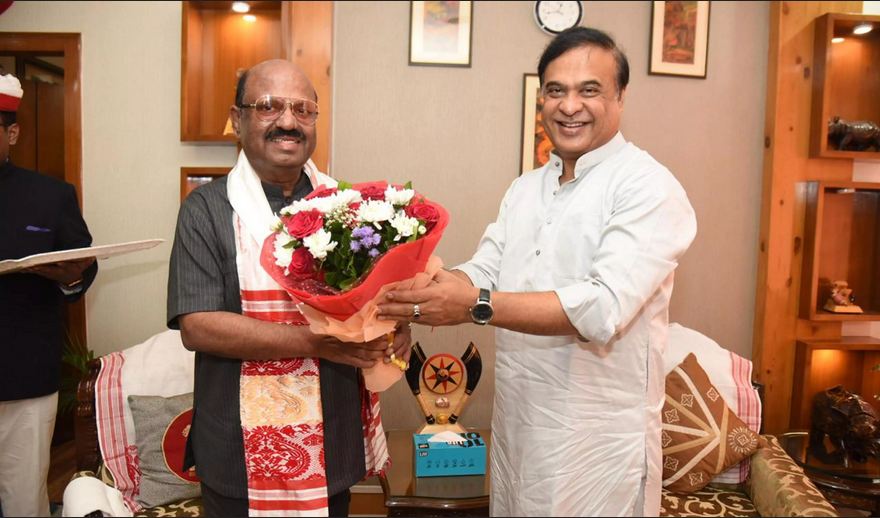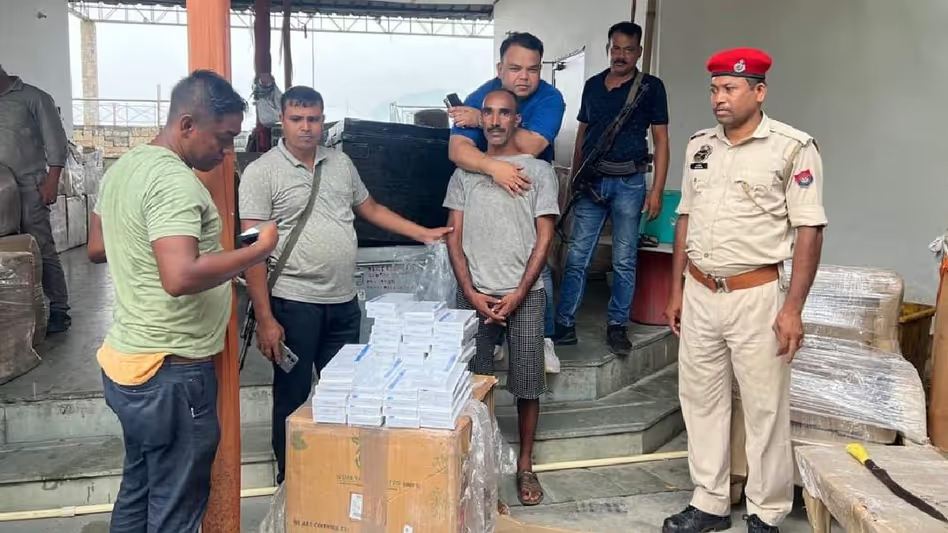The author being involved in the promotion of these works himself, as he heads an organisation named ‘Society for Srimanta Sankaradeva’, the readers get to know the authentic stuff about this culture
 KRC TIMES Desk
KRC TIMES Desk
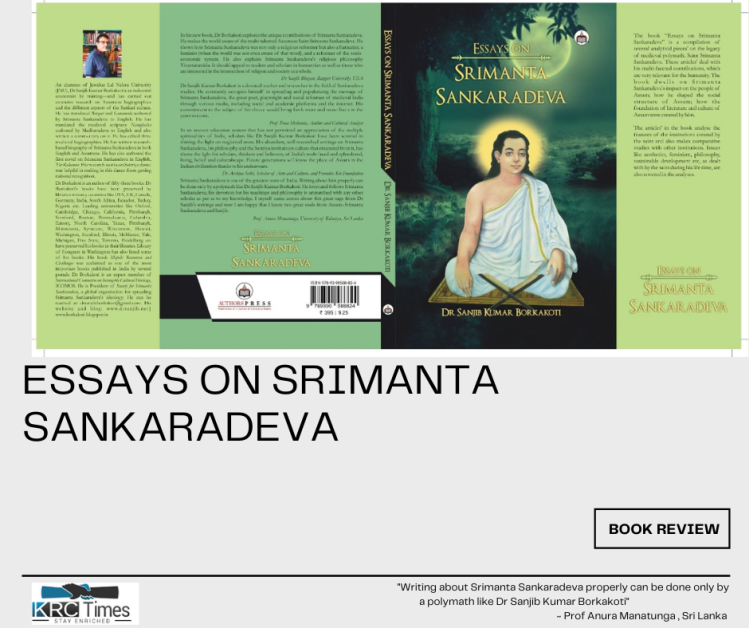
Essays on Srimanta Sankaradeva authored by Dr Sanjib Kumar Borkakoti is a valuable addition to the works on Indian culture and philosophy. He has analysed in this book the significant impact left by the saint litterateur Srimanta Sankaradeva on the socio-cultural as well as the economic milieu of Assam. How the medieval polymath influenced society from literature to culture to economy is exhaustively analysed in this lucid book. Right from the economic sustenance of the Sattra institution to the Vivartanavada philosophy of Srimanta Sankaradeva, everything is analysed in a compact manner in these essays. The author has successfully described the prominent role of the saint litterateur in shaping the socio-cultural fabric of Assam. It was Srimanta Sankaradeva who synthesized the common culture of Assamese people from different ethnic cultures of the Brahmaputra valley. No wonder he is known as the father of the Assamese people. The author presents the whole thing strongly substantiated by his own research works.
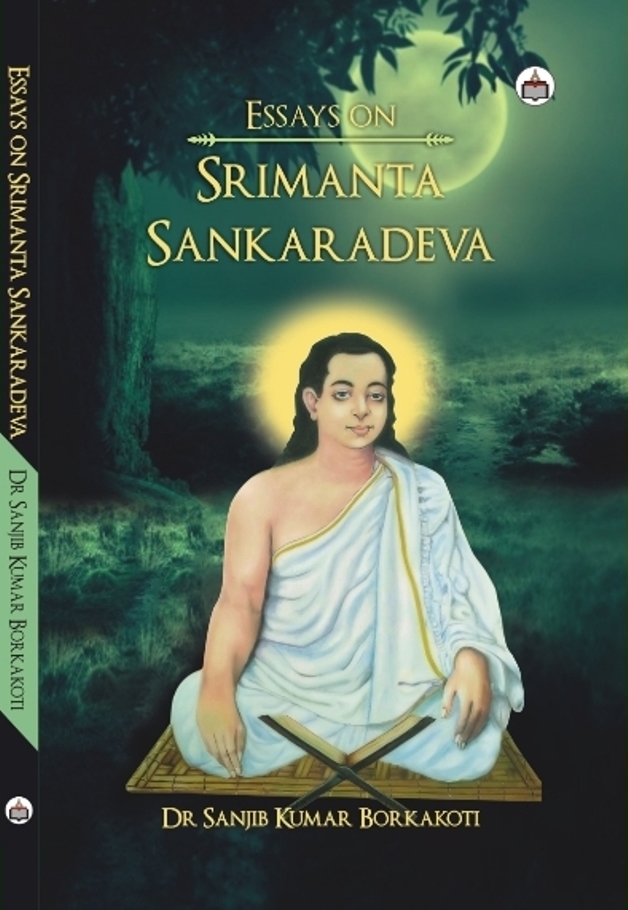
The author has shown how the Sattra institution created by Srimanta Sankaradeva stands out as a unique model of self-sufficiency. He has written elaborately on the economic sustenance of these Sattras based on his own fieldwork covering as many as forty eight Sattras and Thans in different districts of Assam. The author also prescribes viable economic activities for the Sattras so that the currently existing Sattras can sustain themselves in a befitting manner for the present era. Thus it is not only a study but also a great plan that the author has presented. It may be mentioned that the units set up by the saint himself were known as Than, those set up later as Sattra. This and many such gems of knowledge can be found in these essays by Dr Borkakoti.
The book also elaborates the contributions of Srimanta Sankaradeva in areas like feminism, aesthetics, philosophy etc. The Vivartanavada philosophy of the saint is explained with all its features in a valuable essay. The author makes a comparison with other Sanātana Hindu philosophies in his book. He also shows how Srimanta Sankaradeva succeeded in bringing the two parallel paths of wisdom and devotion together. Very few people knew for instance that he was the first to say that Ishwara and Brahma are the same. Spinoza’s philosophy echoed the same after several centuries. Such pathbreaking pronouncements in Indian philosophy needs to be highlighted, to say the least. Dr Borkakoti has done exactly that in his essays. This will go a long way in establishing Srimanta Sankaradeva among the pantheon of saints in India.
Srimanta Sankaradeva was also a pioneer of the drama movement in India, being the first playwright in all modern Indian languages. His plays are called Ankiya plays. He created the unique costume, ornament, make-up etc of the actors worn in his plays. It is hard to find such a multi-talented person on earth. The author has elaborated the Aharya of these plays in one of the essays in this book. The author being involved in the promotion of these works himself, as he heads an organisation named ‘Society for Srimanta Sankaradeva’, the readers get to know the authentic stuff about this culture.

Another fascinating area covered in the book is the comparative study between the ‘Eka Sarana Nama Dharma’ of Srimanta Sankaradeva and the Sikhism of Guru Nanak. There are numerous common socio-economic common elements, which have been pointed out by the author. He says that Guru Nanak had spiritual guidance from Srimanta Sankaradeva; in fact, Guru Nanak came to Assam to meet the polymath during the first Udasi. This is a great discovery, which will go a long way in establishing Srimanta Sankaradeva with his due status among the medieval luminaries of India.
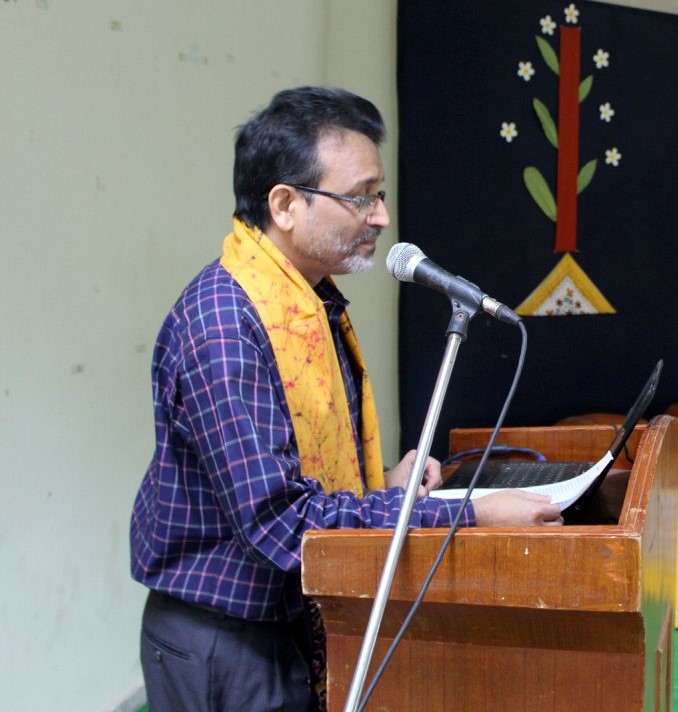
The author has analysed the works of feminism as reflected in the writings of Srimanta Sankaradeva. The polymath departed from the original version of Ramayana in his Assamese transcreation; he presented his own version of Sita, a revolutionary Sita, who spoke with vengeance against her banishment by Rama. Srimanta Sankaradeva’s Sita is very different from Valmiki’s Sita, the analysis of which itself is sufficient to establish the polymath as a pioneer of feminism. His Sita says that she would never again call herself Rama’s wife. Such utterance was unheard of in the then Indian literature. Clearly, the works of the saint litterateur belonged to a different genre.
Dr Borkakoti successfully presents a Pan-Indian role of Srimanta Sankaradeva in his book. He showed how the influence of the saint litterateur spread to other regions of India. These include the eulogy of Sant Kabir, the social structure of Odisha influenced by the saint, the Yatra movement of Bengal derived from the Ankiya plays of Srimanta Sankaradeva etc. Certainly, these essays by Dr Borkakoti will go far in throwing light on the formative years of many regional cultures of India. The Essays on Srimanta Sankaradeva by Dr Borkakoti is, therefore, a valuable addition to the study of Indian literature and culture and philosophy. In a blurb on the back cover of the book, Prof Anura Manatunga from Sri Lanka rightly says that writing about Srimanta Sankaradeva properly can be done only by a polymath like Dr Sanjib Kumar Borkakoti. There are fourteen essays, covering numerous issues mentioned above. It has been published by Authorspress in a paperback edition.

